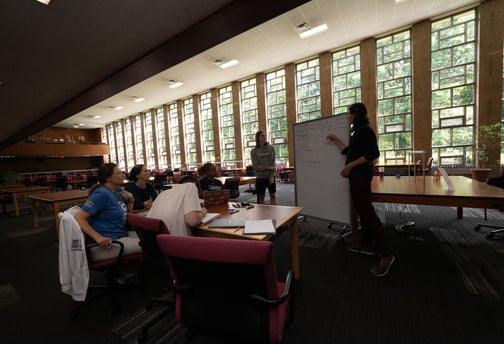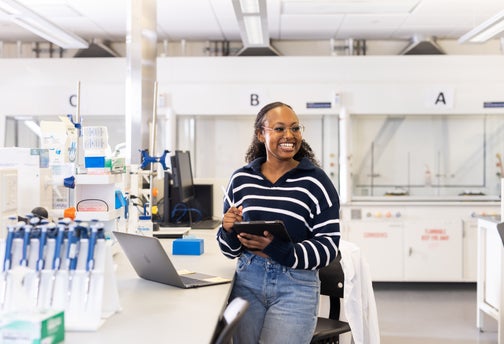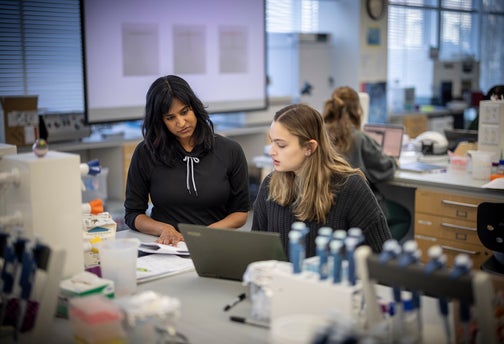The simplest cell contains infinitely intricate mathematics.
The study of biostatistics at Emmanuel challenges you to combine biology and statistics in answering questions about biological systems and human health. You will graduate prepared to address new challenges arising from advances in biomedical science; collaborate with investigators in institutions such as cancer research centers and medical schools on the design, analysis, and interpretation of studies; and make a difference in the world of health sciences.
The Curriculum
View the 2023-2024 Academic Catalog to find course titles, numbers and descriptions.
Requirements for B.S. in Biostatistics
- BIOL1105 Introduction to Cellular and Molecular Biology (SI-L) (NSL)
- BIOL1106 Introduction to Organismic and Evolutionary Biology (SI-L) (NSL)
- BIOL2123 Genetics
- CHEM1101 Principles of Chemistry I* (SI-L) (NSL) AND CHEM1102 Principles of Chemistry II* (SI-L) (NSL) OR CHEM1103 Chemical Perspectives* (SI-L)
- MATH2101 Linear Algebra (QA) (QR)
- MATH2103 Calculus III (QA) (QR)
- MATH2113 Statistics with R (QA) (QR)
- MATH3103 Probability
- MATH3105 Advanced Statistics
- MATH4101 Programming in SAS
and one elective to be chosen from the following courses:
- BIOL2115 Determinants of Health and Disease
- BIOL2119 Current Topics in Biological Research
- IDDS2201 Data Analytics
- MATH2111 Mathematical Modeling for Social Justice (QA) (QR) (SJ)
- MATH4194/95 Research Internship I & II**
*Qualified students may replace CHEM1101 and CHEM1102 with CHEM 1103
**MATH4194 counts as a 3000-level math elective for a B.S. in Biostatistics if the entire two-semester internship sequence (MATH4194 and MATH4195) is completed. Students receive academic credit for the second internship course (MATH4195), but it would not be counted as one of the 12 required biostatistics courses.
- Understand a common set of core mathematical concepts/skills/problems/theorems/ways of thought needed to study mathematical statistics
- Understand foundational principles of biology
- Understand chemical structure of components of living systems (DNA, proteins, lipids, etc.)
- Understand descriptive and inferential statistics, probability theory, methods and techniques
- Be able to apply statistical methods and techniques to current biological topics and research
- Be able to use technology and software programs (SAS, R) to analyze data and effectively communicate statistical results to others, especially non-statisticians.
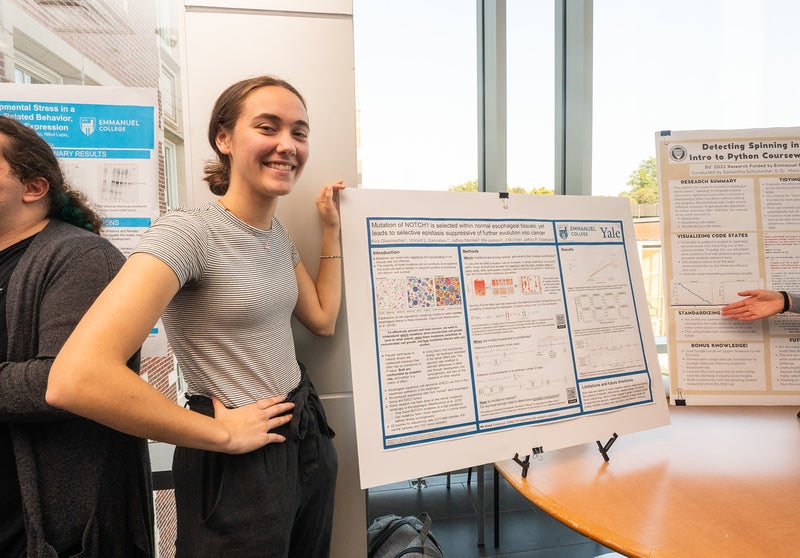
The Right Major, at the Right Place
“During the accepted students’ day, everyone was just so nice that I felt like it was the right fit for me." -Kira Glasmacher ’24
Where Essential Values and Skills Meet the Real World
Along with areas of knowledge and major requirements, you will cultivate essential values in the classroom and complete two courses in each area:
- Social Justice (SJ): Develop knowledge, skills, values and motivation to participate beneficially in activities of personal and public concern.
- Diversity & Multiculturalism (DM): Understand the complexity of identity the historical truths of different cultural perspectives to address bias and examine contemporary social issues.
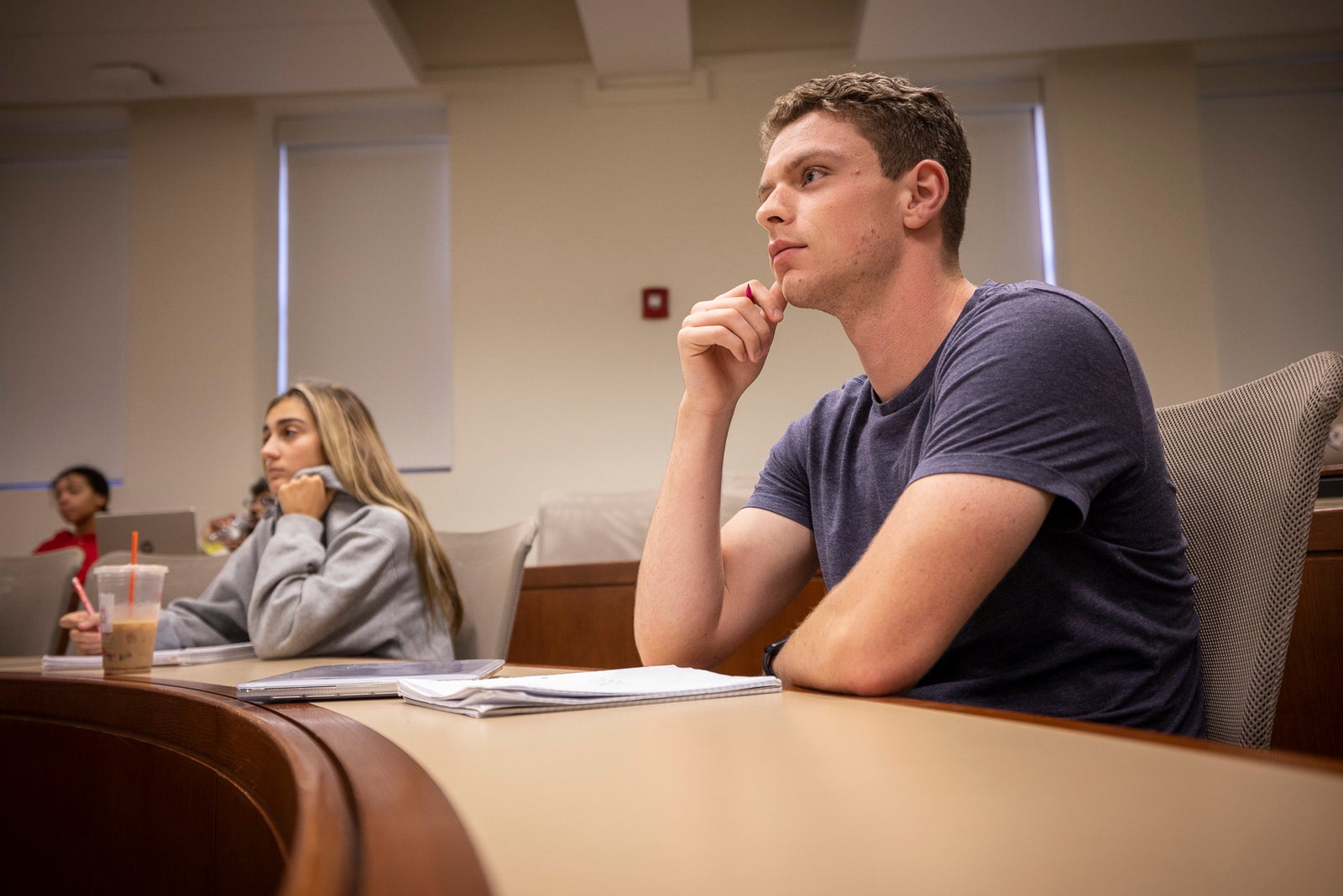
One hundred percent of Emmanuel students complete an internship as part of the core curriculum. In a city as dynamic as Boston, your options are bound only by the limits of your curiosity.
As a biostatistics major, the doors of Boston’s research and healthcare organizations are open to you. Gain experience in data preparation, analysis, and presentation, and make professional connections at institutions such as Beth Israel Deaconess Medical Center, Dana-Farber Cancer Institute, Harvard Medical School and more.
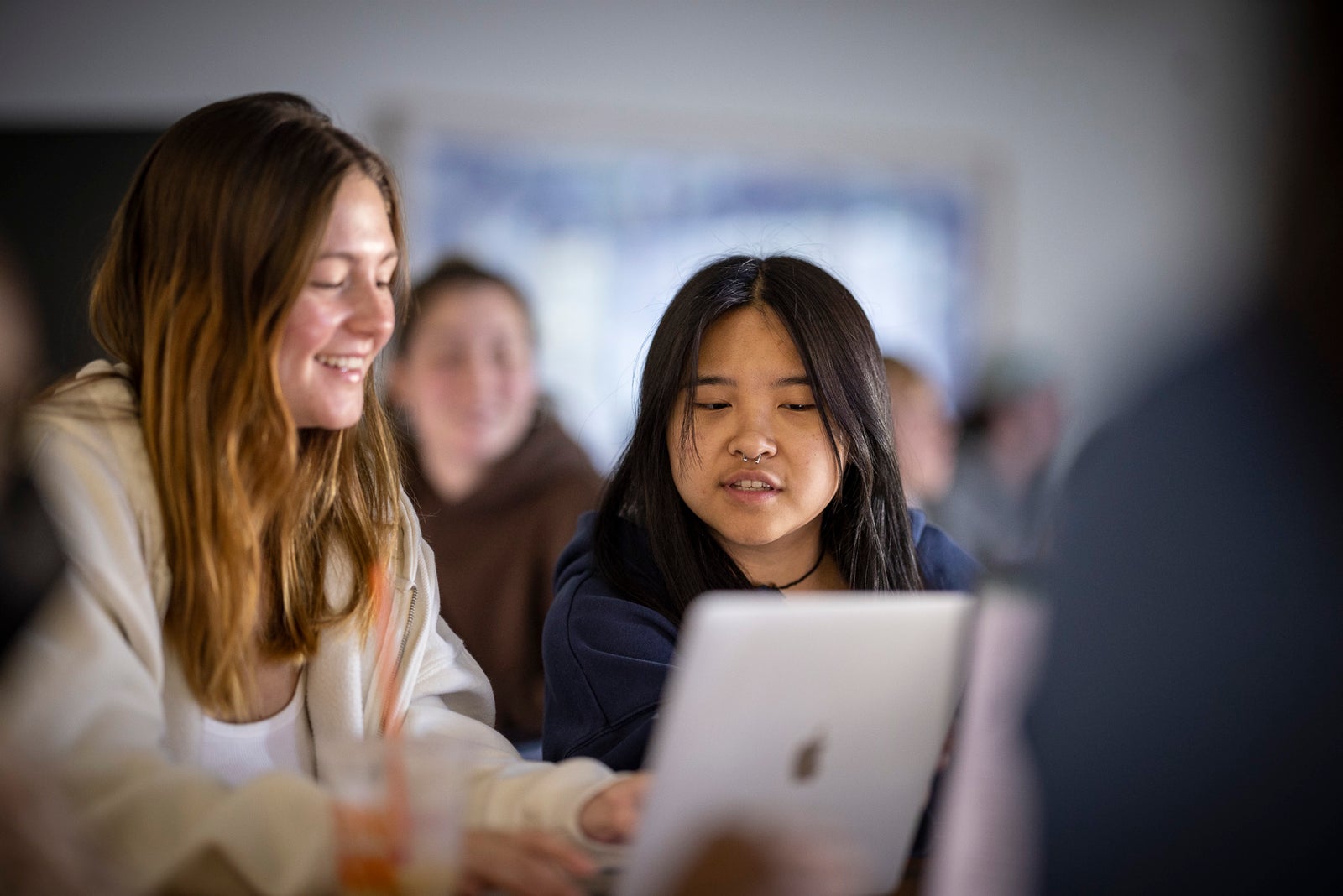
In all majors, the Capstone Experience involves completing a significant piece of work that requires the integration and application of learning from multiple courses.
For your capstone experience, you will utilize skills and statistical knowledge from previous courses—and the data of your choice—to complete the Programming in SAS course (MATH4101). After performing analysis on your own data sets, you will write a paper summarizing the statistical methods used and the results you received.
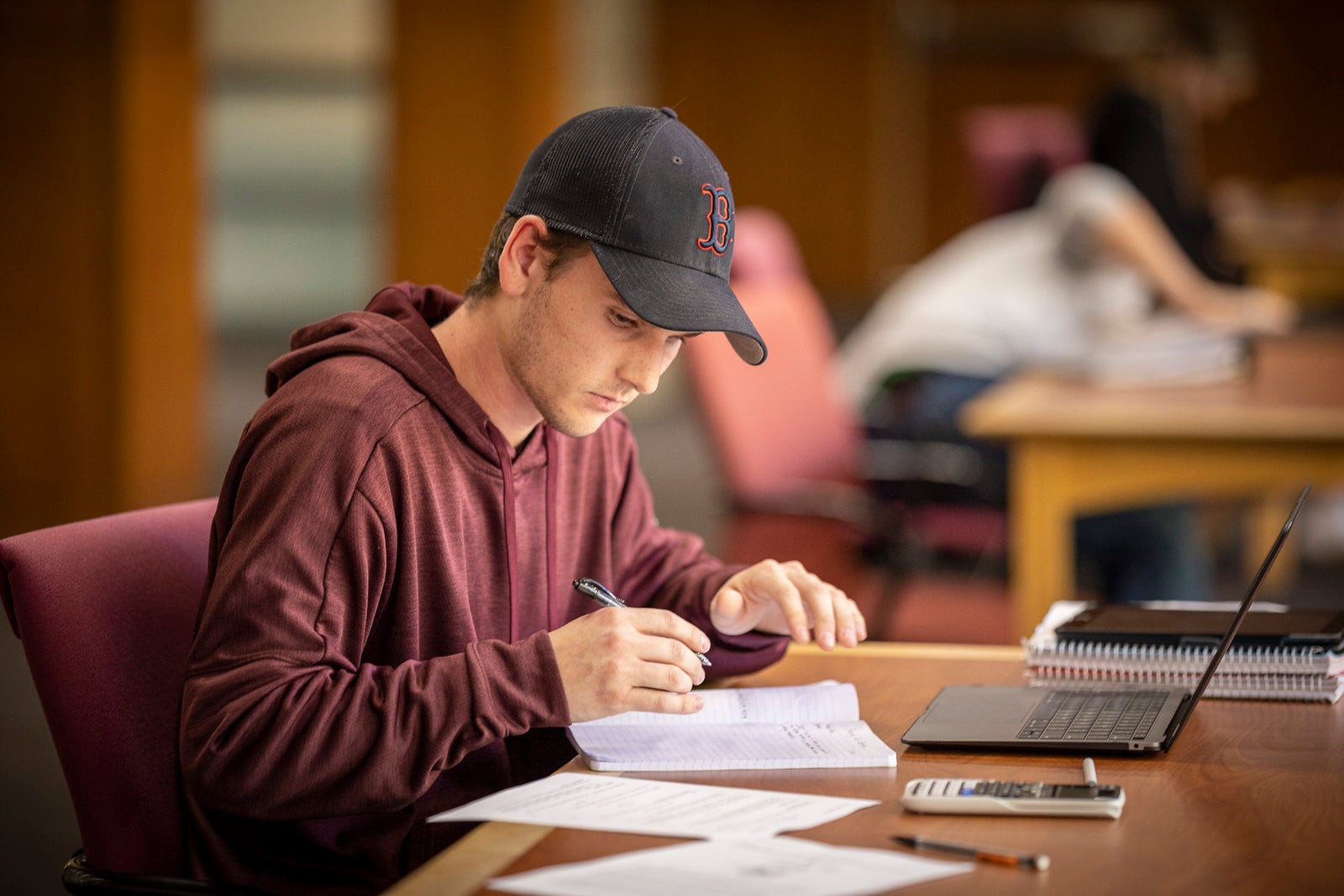
Science & Health Spotlight
See more news and stories related to the School of Science & Health
